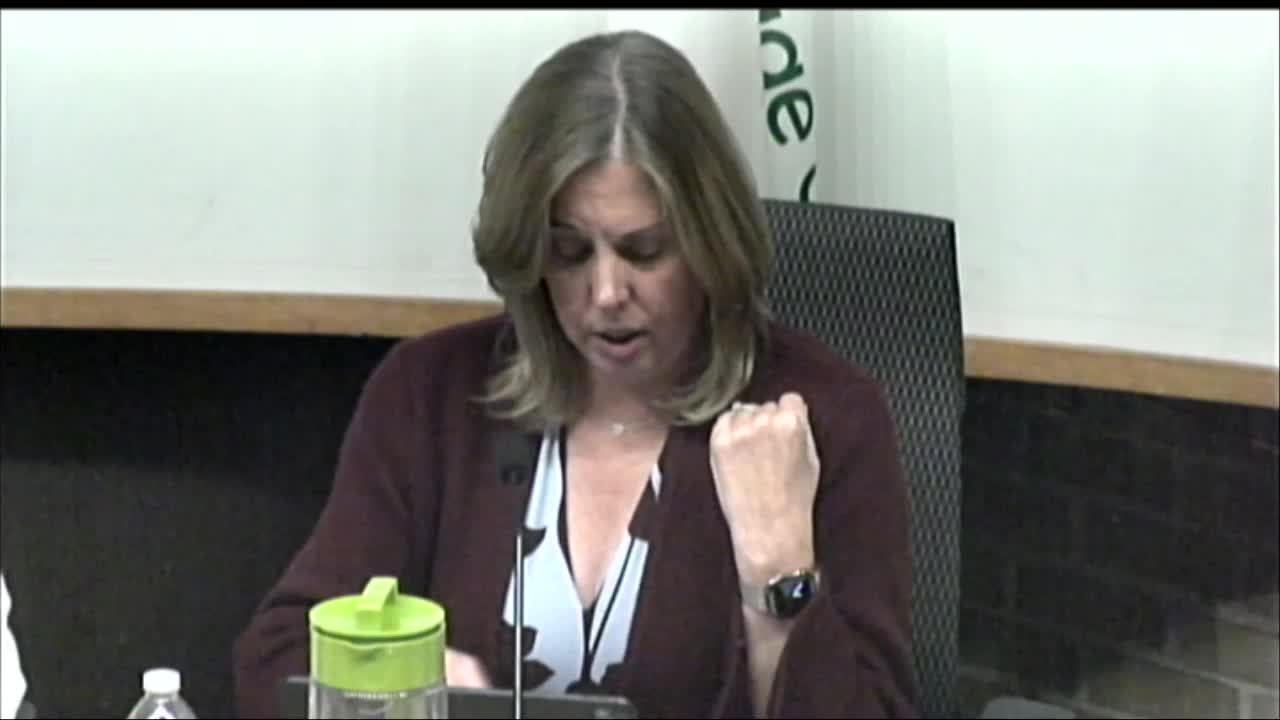Oak Park board reviews ordinance to bar use of village property for immigration enforcement
Get AI-powered insights, summaries, and transcripts
Subscribe
Summary
Village staff presented a draft amendment to Oak Parkwelcoming ordinance that would prohibit use of village-owned property as staging, processing or operations bases for civil immigration enforcement; trustees asked for clarifications on leased properties and enforcement; no final vote was recorded.
Oak ParkVillage Board members met in a special session to discuss amendments to the villagewelcoming ordinance that would bar the use of village-owned property — including parking lots, vacant lots and garages — as staging areas, processing locations or operations bases for civil immigration enforcement.
Village Attorney Greg Smith told trustees the draft draws on language used by the cities of Chicago and Evanston and rests on the villages authority to define allowable uses of its property. "If a violation occurs," Smith said, "the village would be able to file suit in court and request a declaration that the violation occurred and ask for an injunction prohibiting future violations." He contrasted this civil enforcement approach with criminal penalties, noting that enforcement would most likely occur through court action.
Trustees pressed staff on two legal limits built into the draft. Trustee (speaker 2) asked whether language covering "operations bases" would also cover detention uses; Smith answered that broad phrasing could be construed to include semi-permanent holding areas if erected on village property. The trustee also sought stronger language to maximize legal leverage; Smith said the ordinance cannot retroactively rewrite existing contracts and therefore does not apply to village-owned property currently subject to leases or use agreements. "The village can't contract for something and then try to legislate around it," Smith said; he added the village could seek voluntary compliance from lessees, develop signage under the manager's authority, or pursue lease amendments where feasible.
Kelly Keyes, the village's chief diversity, equity and inclusion officer, described outreach and operational steps intended to make protections concrete. Keyes said staff has updated a web landing page, elevated frequently asked questions, coordinated with partners including the Illinois Coalition for Immigrant and Refugee Rights and the ACLU, and begun trainings with nonprofits. "Wehave distributed about 9,000 of the cards with a QR code that lead to our immigration resources webpage since October," Keyes said, and added the village distributed another roughly 11,000 cards in November and has seen page views double since late October from a September baseline.
Board members thanked staff and partners and discussed next steps for implementation and community education. President Skammen said staff will pursue additional information, including a list of village properties subject to leases and follow-up on potential enforcement pathways, and will coordinate with the village police and the citizen police oversight commission on any related inquiries. The meeting record shows the board moved to consider the ordinance (motion seconded), but no final vote on adoption was recorded in the transcript of the special meeting.
The ordinance as presented includes three core restrictions (staging, processing, operations base), references local precedents in Chicago and Evanston, and anticipates civil court enforcement rather than an administrative penalty scheme. Trustees asked staff to provide further detail on (1) the number and identity of village-owned properties currently leased to private parties and (2) what contractual or voluntary mechanisms the village could use to reduce noncompliant uses on leased sites. Smith said staff would report back with those specifics.
If approved by the Village Board at a subsequent meeting, enforcement would begin through civil litigation seeking declaratory relief and injunctions; the draft does not include new criminal penalties. The Village did not take a final recorded vote on the ordinance during the special meeting; instead, staff and trustees set follow-up work and additional community engagement as the next steps.
